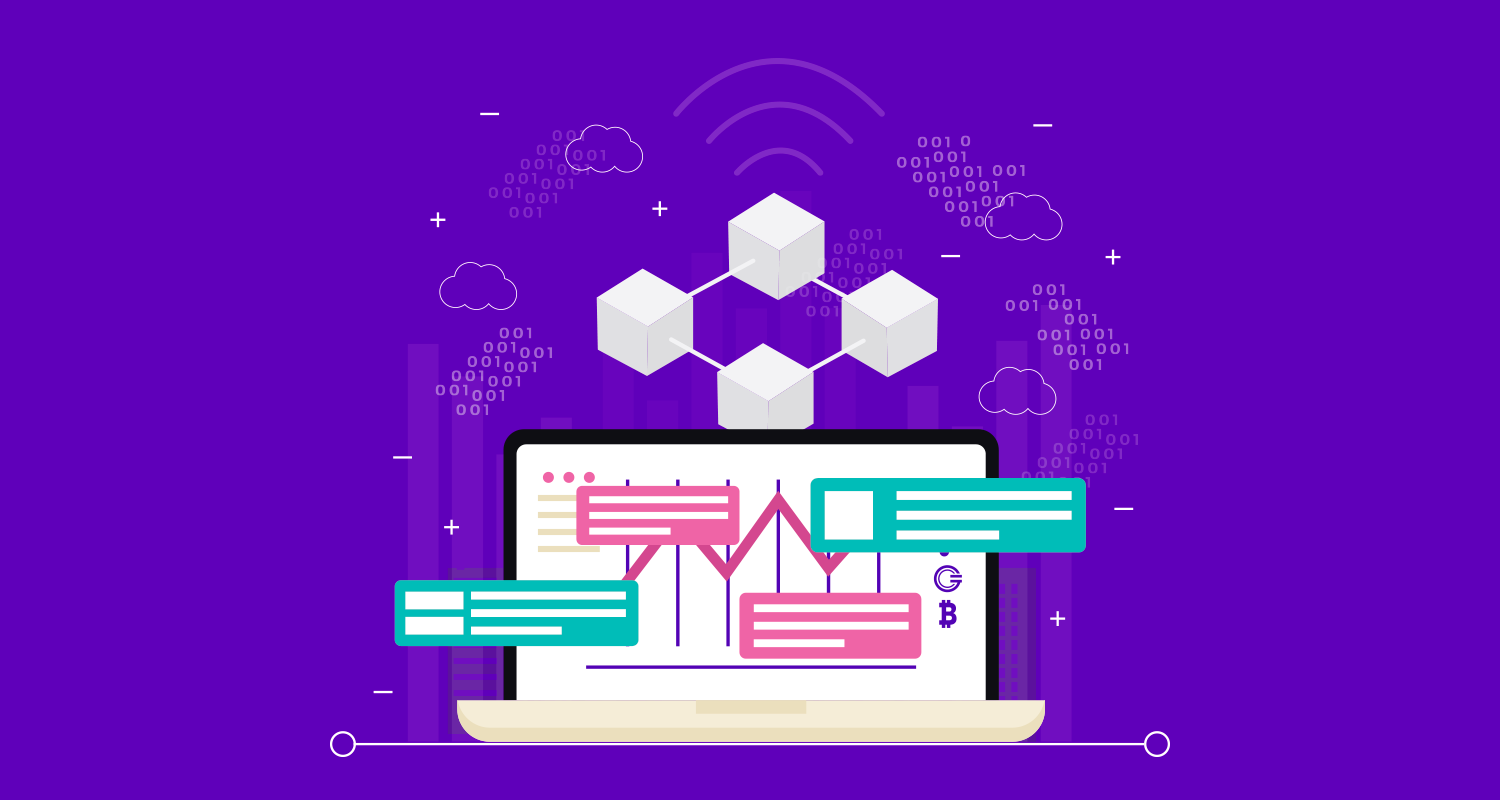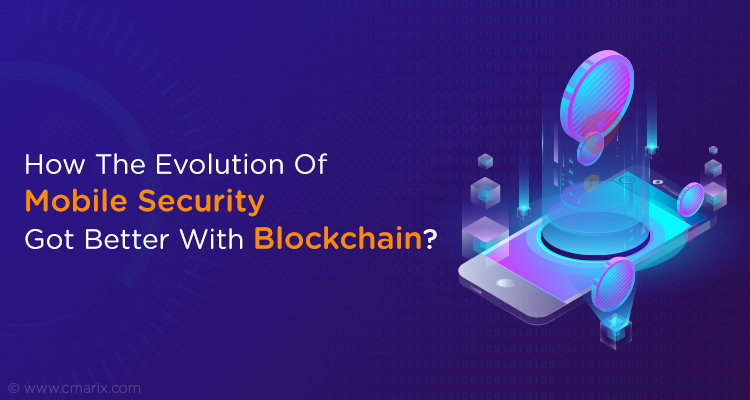Blockchain technology is the new tech frontier that is ushering in an era of distributed ledger technology (DLT). Known best for the technology behind cryptocurrencies, enterprises looking forward to Hire Blockchain developers to underpin digital currency and decentralized applications (dApps).
The blockchain provides a public ledger for the entire network of peers, which is distributed and decentralized. This means that the data is distributed across a peer network rather than being stored in one place, which prevents data loss in the event of a natural disaster or cyberattack.
One of the most important aspects of the blockchain is that it is a decentralized network. This means that it is not owned or controlled by one entity and that no one can control who is on the network. The network is open to all, and anyone can join. All members of the network are equally important, and it cannot be controlled by a single owner.
As businesses tap into the market for digital assets, blockchain technology is proving to be a key solution for powering them. This opens up a wide range of possibilities for digital assets, including being programmable and usable as currency, as well as being able to be exchanged with other blockchain-based digital assets. This has sparked a boom in the digital asset industry, and it is only going to continue to grow in the coming years.
Since the surge in popularity of cryptocurrencies and their underlying blockchain technology, the number of digital assets in circulation has grown exponentially. This has led to a significant rise in the number of non-fungible tokens (NFTs) and Mobile Security Applications With Blockchain.
A distributed ledger is a database that is maintained on a peer-to-peer network and is shared across all the nodes in the network. It is a public ledger with a distributed peer-to-peer network that cannot be changed without consensus from the network.
As the technology matures, the vision is to provide access to a more comprehensive set of smart contracts and combine the best of both worlds. This blog post helps you make a good note of why enterprises are advocating digital assets at length.
Digital Assets: A Brief Guide With Examples
A cryptocurrency is a digital asset designed to work with blockchain technology and fulfill the promise of its name. Cryptocurrencies are not backed by any government or central bank, and they do not have a central issuer. This means that, unlike traditional currencies, they cannot be inflated at a government’s command or by a central bank. Cryptocurrencies rely on a blockchain, which is a distributed, digital ledger that records transactions between two parties.
Digital assets are best represented by distributed ledger networks in the form of tokens, which can either be fungible or non-fungible. These tokens can be cryptocurrency, bonds, stablecoins, and much more.
Furthermore, Ethereum is another well-known platform for building and issuing tokens, which can be traded on decentralized exchanges or used to purchase goods and services. To be specific, digital contracts imbibe digital assets with encoded agreements between parties. And these digital contracts can represent anything from simple agreements.
Digital identities are digital assets representing a person, organization, or thing, and they can be used to log in to online accounts, sign documents, or access services.

Some More Examples Of Digital Assets
- Cryptocurrencies- Bitcoin and Ethereum
- Loyalty points- airline miles and hotel points
- Blockchain-based tokens for the gaming industry
- Digital media- music, movies, and books
- Intellectual property-patents and trademarks.
How To Use Digital Assets In Blockchain Apps?
Blockchain technology is increasingly being used by blockchain development companies to create new products, digitize data, track the provenance of information, and provide the ability to automate processes.
Businesses Can Experience Security And Transparency While Tracking Their Digital Assets
- Payment tokens are a special type of cryptocurrency, which are used as digital forms of currency to pay for goods or services. They can be used to pay for almost anything on the internet, ranging from online shopping to buying items on an e-commerce website, to buying digital content, to even sending money on a peer-to-peer basis. Because cryptocurrencies are decentralized, they don’t have a central authority that controls them as traditional currencies do.
- dApps are applications that run on the Ethereum blockchain, and they offer several advantages over traditional applications. For instance, they are accessible to anyone, anywhere, and can be run on a smartphone, tablet, laptop, or desktop without the need for downloads or installation. They also offer a near-infinite number of possible applications, such as games, apps, platforms, tools, and websites.
Business Opportunities
Since the 2008 crisis, investors have been searching for new asset classes that can provide returns with less volatility. In the process, they have discovered a new asset class that has had a profound impact on the world economy: cryptocurrencies. The below measures can be used to build business opportunities with blockchain.
- Digital assets can trade on specialized platforms, which are similar to traditional stock exchanges.
- With digital assets, enterprises can build a payment system to pay for goods and services, similar to traditional currency.
- Digital assets can be invested in many different ways, such as through blockchain-based startups and Initial Coin Offerings (ICOs).
- Can be used to power blockchain-based applications.
Security Risks And Compliance Requirements
Blockchain, just like any other technology, is not free from any security risks or compliance requirements. However, considering a few factors can help you sail ahead.
As we all know, the blockchain is a distributed database, and its data gets stored on a wide network rather than on a single server. Hence, data cannot be hacked. Businesses looking forward to using blockchain for digital assets must ensure they take care of the right security measures to protect their financial process. The integration of firewalls, anti-virus software, and password protection are much-welcomed steps.
On the flip side, businesses must know the compliance requirements specific to the blockchain. This will help them to avoid failure or any other type of legal punishment.
Why Enterprises Are Gaining Interest In Digital Assets With Blockchain?
To start with, enterprises look for security while handling their digital assets, and this is where blockchain provides a shield of high-level security. The distributed ledger technology integrated ensures every single transaction is recorded and verified, so no hacker can virtually breach it.
On the other hand, transparency is another significant aspect of the digital transaction process, which is required by every enterprise. Blockchain technology ensures that every transaction is publicly visible, helping build better transparency.
The absence of a centre of control makes blockchain technology a distributed network. It allows the transaction process to be faster and more efficient with the least number of delays. The cost of the transaction process always concerns enterprises, but with Blockchain technology, they no longer need to be worried about the cost, as this technology eliminates intermediaries that reduce overall cost.
Any type of transaction can be done without facing any lag or delay and the credit goes to the scalability of the blockchain. This makes digital asset operations a picture-perfect choice for larger financial operations.
The Future Of Digital Assets
The main functionality of digital assets is to store, trade, and manage blockchain in digital representations of value. It is a distributed database that allows a secure, transparent, and tamper-proof transaction system. When it comes to predicting the future of digital assets, it is very promising. Today, a massive number of enterprises are investing their time and effort in using blockchain to manage their digital assets.
With time, the popularity of this technology is increasing, giving a clear picture of the future, where things would be handled and managed by digital assets powered by blockchain to mitigate fraudulent activities while increasing transparency in the digital asset market.
What More To Know Before Implementing Digital Asset Management (DAM) And Blockchain:
Handle Media Files And Beyond
Digital assets have unprecedented value for an organization, whether it is for word processing documents, managing financial data, or designing specifications. The capability of blockchain doesn’t stop at storage only; it can also handle metadata for any type of file.
Much more than transactions
Bitcoin is not something that defines the blockchain overall, but it is an app that is a part of the blockchain. On the other hand, blockchain technology allows transactions between parties without the need for an intermediary.
With this technology, enterprises can run smart contracts, supply chain management, and identity verification processes easily.
A Network Is All It Needs
To function, blockchain technology needs multiple nodes to reach a consensus on new transactions before adding them to its ledger. This works as a range of trusted nodes clubbing together and working. These nodes can run on dedicated software or software installed locally by users.
A Viable Solution To Real Problems
Digital assets provide realistic solutions for enterprises, letting them resolve issues including intellectual property rights management, patient records, and even voting while implementing Effective Blockchain Design Principles.
Final thoughts
The digital asset management landscape is evolving rapidly, and the opportunities for building long-term relationships with customers are significant. It enables companies to leverage their digital assets to improve the customer experience, increase sales, and achieve greater business results.
We at CMARIX- Web Development Company are paving a way for businesses to start on their journeys by integrating blockchain and digital assets into their business.
We anticipate the issues to be resolved in a defined timeline. This saves businesses time and effort. We are a one-stop shop for enterprises to explore how they can use blockchain for digital assets to streamline their operations for a seamless user experience.
To find out more, give us a call or get in touch with our sales representatives.







